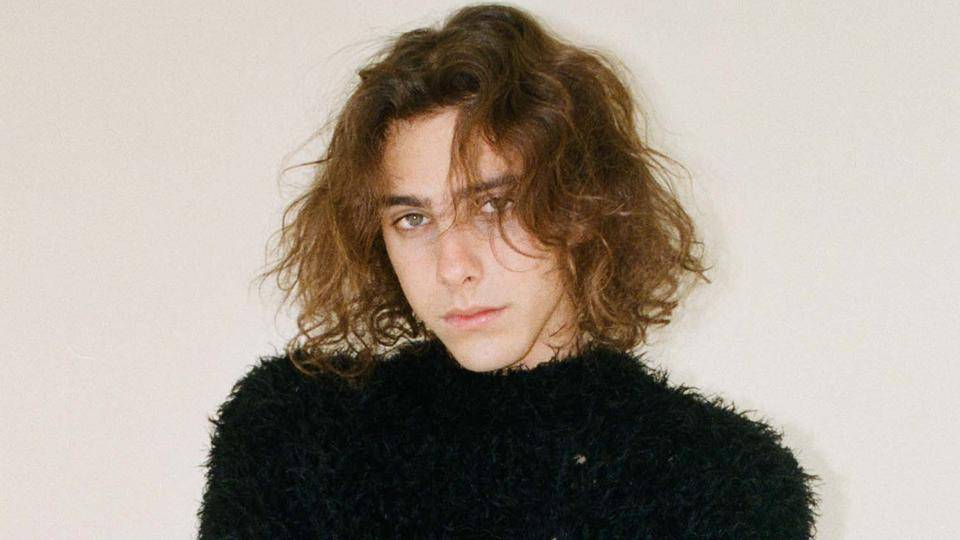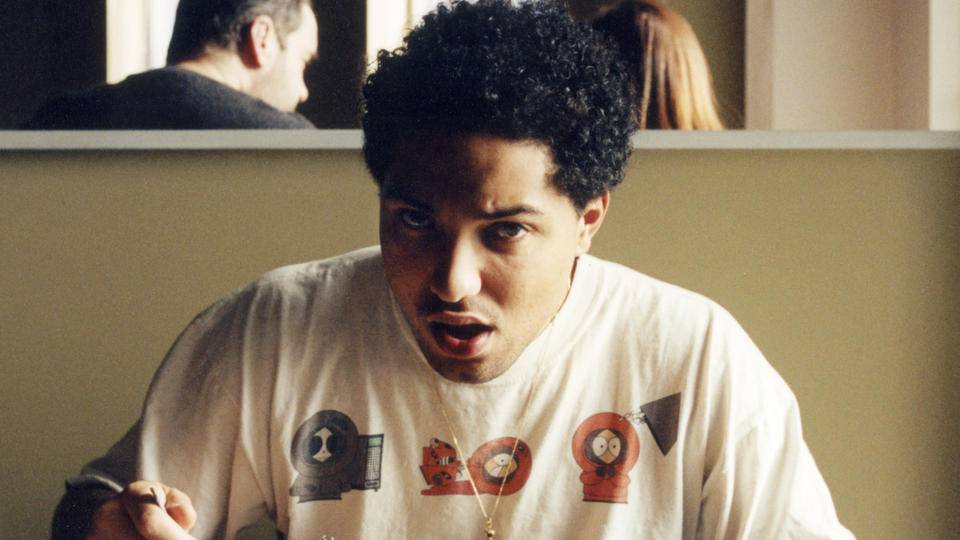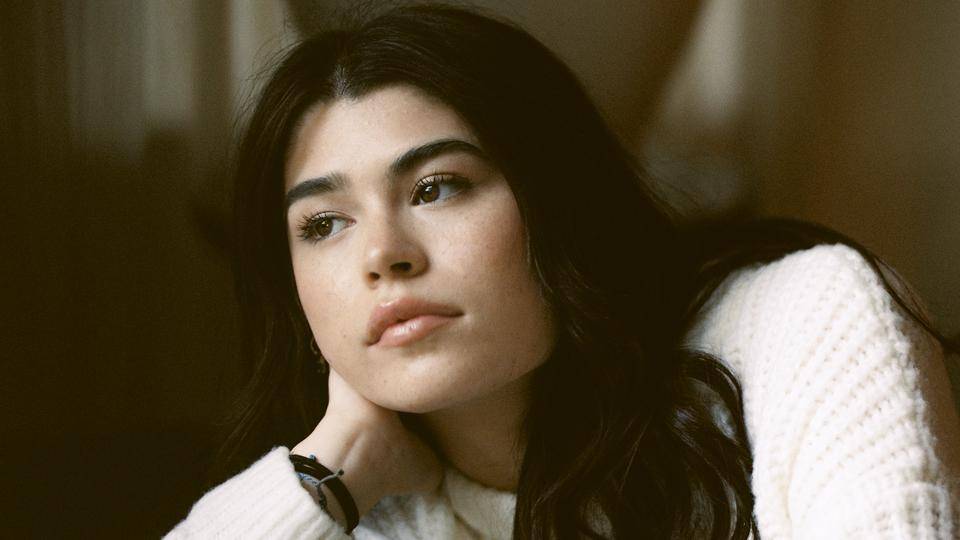André Aciman Takes Us Back To The World Of Call Me By Your Name In New Book Find Me

It was an Italian summer filled with a heavy dose of lustful infatuation, and the occasional slice of peachy intimacy. But the world of Call Me By Your Name didn’t end in 2007. Twelve years on, writer AndréAciman is ready to continue the story of the two lovers who captured and broke our hearts: Elio, a curious and enamoured 17 year old, and Oliver, an enigmaticyoung visiting scholar,who swoops into Elio’s life and changes its course forever.
The first instalment’s popularity exploded when the movie adaptation came to screens in 2017. The film, directed by Luca Gaudagino, starred the likes of Armie Hammer (Oliver) and earned leading actor, Timothée Chalamet (Elio) a nomination for Best Actor at the 2018 Oscars.
We chatted to AndréAciman about what fans can expect, who he’d cast in a Find Me movie (here’s hoping), and advice he has for young, aspiring writers...
'Warning! This interview contains discussion of themes and events in the book. Fans who don’t want to be spoiled should read at their own risk...'
We skip forward 20 years in Call Me By Your Name. Does Find Me uncover what happened in this period?
That’s exactly what I wanted to do. I’d left the twenty years very ambiguous. I figured let’s go back and see what happened to the father (Samuel), see what happened to the son (Elio) and to Oliver, and I’m not quite done because I might want to work on the mother as well... I’m not sure yet.
Wait - so we could maybe expect a threequel?
We’ll see, I’m not sure. I don’t want to promise things I may not keep.
When did you know that you wanted to write a second book?
When I started writing, what happened to Elio when he’s finished with university and so on, I started doing that after publishing Call Me By Your Name [for everyone’s sake, from now on abbreviated to CMBYN], because I really wanted to catch up and see what had happened to them in between. I tried once, twice, quite a few times, and eventually, I wrote another book, then another book, then I came back to Elio again. It was not working out. It was not working and I didn’t know what was wrong. It was just very... to use that word, derivative. I was really imitating CMBYN, which is not what I wanted to do.
So I abandoned the project, but then I decided at some point that I wanted to write about the father, and the father is going to go and meet Elio in Rome, and that’s how we get to meet Elio again. Later on, much later on, the story is completed. That for me made more sense, and I’m glad I did it that way, otherwise you would have had CMBYN Part II, Part III, Part IV, and it would have been boring.
And we only briefly heard from Samuel towards the very end of CMBYN. What inspired you to tell his story this time around?
Well, I didn’t know I was writing Samuel’s story until about four or five pages into it, then I realised, “oh my God, what am I doing? This is not about another character, this is about Samuel!”
This (Samuel’s first meeting with Miranda) happened to me when I was riding a train once. I was sitting, and a young woman came and sat next to me and started talking. She told me about her father who was very sick, and that she was going to visit him, and she had a dog with her. She said: “Could you look after my dog while I go to the bathroom?”
I thought, ‘What a marvellous human being.’ She got off two stops later and we never exchanged anything, not phone numbers or anything, but I immediately started writing about her, I didn’t know what I was doing, but I was writing, and eventually, two pages later, I realised ‘This is Sami’s story,’ and that’s how the book was born.
And we also see inside Oliver’s perspective as well...
I wanted to know: ‘What’s his marriage like? What is he doing? What is his life like?’. And I didn’t want him to be the typical husband who’s disappointed or tired of his wife and having an affair. I’d much rather have him having a kind of weird, fantasy affair. And I wanted him to get, at some point, some kind of indication that the past is coming back to him. Very much as it comes to - I don’t know if you’ve ever read The Dead by James Joyce?
I have not.
Well, there’s a character called Gretta. She hears a song, and she remembers an old, old boyfriend, [from] years before, who died, and that’s what happens to all of us. We hear someone playing a piece of a piano and immediately reconnect with the past.
Can we talk about the importance of music in the book? You give Elio this huge talent, it becomes his whole career, his life.
Whenever I mention music, and you’ll probably notice in many of my books that I mention classical music all the time, I can’t help myself, it’s not the soundtrack to the story. Anytime a character alleges something about music, what they are really saying is: “Can we be serious about the really important and fantastic things that are occurring between us or in life itself?”
Music to me is the highest level of achievement that mankind can ever attain, and so, in a sense when they speak about music, they’re talking about is longevity, about eternity, about the things that make our time on Earth seem loved and significant. It’s part of a bigger rendezvous, which is the one with music - with eternity.
That’s what the father of Miranda says too. He’s not talking about music, although later on, for Oliver, I think it’s Bach he’s talking to, but it’s more like... our lives are insufficient. We’re not given enough time, we shouldn’t be dying so soon, and basically, we don’t want other people to remember us. That’s nice, that’s sweet - but we want them to take our lives and basically take them to the next level, and the next level in the third generation, and so on. That’s why I have Ollie [Oliver, Samuel and Miranda’s son] in the novel, I have the little boy because basically what you want is many generations, each one taking up what the previous one has done, or not achieved, and trying to fix that and achieve it for them.
On that, Elio and his father are so similar, there are so many parallels between them. Did you intend to have them even think in the same ways?
Yes, absolutely. You have Miranda’s father, Sami, Elio, you have Miranda herself - they’re all speaking the same language. They basically realise that there are certain things that are stupid in life, and then there are the things that really, really matter - we may not even know the name for them, but we know they matter. And I love that, that very concept.
And the vigils...
The vigils are like little appointments you have with yourself. They’re moments where basically everything that happens in your life is not necessarily gone, simply because it’s passed. The past is with you, nothing is gone. Everything stays. The characters preserve the past, as if it’s part of their lives. It’s not just something that occurred once and is to be done with, it’s still there.
I just want to talk about the movie for a second. Do you think Timothée and Armie were faithful to Elio and Oliver in the way that you wrote them?
This is a very difficult question, because I can no longer remember who Oliver and Elio were in CMBYN. Because they have been totally overwritten and replaced by Timmy and Armie, and I welcome that. I love the film. I love that it took the story and gave it kind of closure. The film was actually superb, and I think that the actors were fantastic. I could never imagine Elio looking as someone different. Of course I don’t see him yet as a character in Find Me. I don’t really see my characters, I don’t imagine them, I don’t even describe them to my readers, because I don’t see. But should there be a film, they probably would be replaced.
Who would you envision playing the new roles of Miranda or Adrien?
The only one I can think of, because I like her a lot, is Rachel Weisz. I like her very much.
Yes! Have you seen Disobedience?
No, I haven’t! But I’ve seen her in many films. I’ve always liked her, because she looks so stern sometimes, even though she’s extremely warm. She has a cold front which I absolutely adore.
I can’t think of anybody else. I’m not visual, that’s the irony of the whole thing, people say that I describe in detail, I don’t.
You’ve had such an immense response from fans and readers, what does that mean to you? How does it feel to have such an impact and to really change people’s lives?
It’s fantastic, it’s wonderful, but you have to realise that when I write, I don’t write with any kind of purpose or mission. I just want to write a story that’s well written, that is about human beings who are having trouble connecting, and usually they have unconventional stories to tell.
But I love the fact that many of my fans use the book as a kind of narrative about their own lives. “This reminds me of my first love,” people always tell me that. God, it happened 60, 70 years ago in some cases. They say: “It brought it all back to me, and it breaks my heart.” And then there are people who say: “I’ve never fallen in love yet, but if I fall in love, I would love it to be exactly like this,” and then there are the people who tell me “your book was so influential, that it made it easier for me to speak to my parents about my sexuality.” And I saw this all over the world. I was in India, and Paris, and parents would come with their daughters and they would say: “She made me read your book because she thought it was important, could you sign it?”
I love the fact that people from every corner of this globe take my book and use it. I’m very deprecating and I’m very private, I like having at least a role to play. A small, small role - but I think not insignificant.
No. Not at all. Did you expect such a huge response when you first wrote the book?
Absolutely not. I’m not the most self-confident person in the world. A self-confident person would never be able to write such a book, you have to have all kinds of doubts about yourself to write the book. But I didn’t even think it was going to be published.
What? No!
Yes! You give your agent the book, she says: “I’ll read it, why did you write about this?” I said “I don’t know, I just wanted to write something.” And the next thing you know, they sell it in 48 hours, and then somebody calls and says they’re going to make a film. “Are you serious?” It was all unexpected.
On that, do you have any advice for young writers?
Yes, I say two things. One is, read the classics. Read the people who have all died, at least 100 years ago, because they’re very, very established. The second thing I tell people - it’s a hard one - is each one of us has one song to sing. It’s our song. It’s no one else’s. Don’t imitate anybody else’s song, find out what your song is. What is it that troubles you the most? That is you, and has been you since you were two years old, and that’s what you should write about.
Write about what you know?
You may not know it, but it has been percolating in you since you were very, very young. And it’s where experience will not help, because experience can sometimes mask what is really inside of you. You may feel very ashamed of writing about certain things, so you’re going to write what everybody else writes, and that’s not a good idea.
There’s also a trend in music at the moment, especially in LGBTQ+ artists, using Call Me By Your Name references in their songs. Have you heard any?
I haven’t heard the songs, but I know that some musicians have. I know that a television series has used music from CMBYN, and then there are figures who will refer to the idea of CMBYN. But I only listen to classical music, so I wouldn’t know!
There’s an artist called Clairo, she recently performed her song ‘Bags’ on Ellen. The lyrics are: ‘You can call me by the name I gave you yesterday’. Then there’s Maya Hawke, daughter of Uma Thurman and Ethan Hawke. She has a song called ‘To Love A Boy’, and it has the lyrics ‘I ask why, it's better to speak than it is to die.’
I didn’t know that! Thank you for telling me that! ‘Better to speak than to die’ is something I stole from another writer, who wrote it in the 16th century, and I love that thought, you know? Either we die, or we have to say it, and I love that.
I’m gonna listen to those songs! I have to!
'Find Me is available in UK stores 31st October.'





